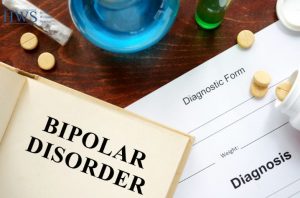Bipolar disorder, a mental health condition marked by extreme mood swings, affects millions worldwide. As our understanding of the disorder grows, so does the range of treatment options available. In some cases, tools like the autism quotient may be used to assess overlapping neurodevelopmental traits, which can inform more tailored and effective treatment strategies. This post explores the latest innovations in treating bipolar disorder, offering hope and new possibilities for those affected.
Understanding Bipolar Disorder
Etiology and Pathophysiology
Bipolar Disorder Treatment arises from a combination of genetic, environmental, and neurological factors. Genetic predispositions interact with environmental stressors, triggering episodes of mania and depression. Neurologically, the disorder involves imbalances in neurotransmitters, which affect mood regulation.
Diagnosis
Diagnosing bipolar disorder involves identifying periods of mania or hypomania and depression. The DSM-5 provides criteria for diagnosis, but the variability in symptoms can make accurate diagnosis challenging. Misdiagnosis can lead to inappropriate treatment, highlighting the need for thorough assessment.
Traditional Treatments for Bipolar Disorder
Current Pharmacotherapies
- Mood Stabilizers: Medications like lithium and valproate are commonly used to stabilize mood swings.
- Antipsychotics: Drugs such as risperidone help manage symptoms of mania.
- Antidepressants: While used cautiously, antidepressants can aid in managing depressive episodes.
Therapy Options
- Cognitive Behavioral Therapy (CBT): CBT helps patients manage negative thought patterns and behaviors.
- Interpersonal and Social Rhythm Therapy (IPSRT): IPSRT focuses on stabilizing daily rhythms and improving interpersonal relationships.
Limitations
Traditional treatments, while effective, often come with side effects and limitations. Medication can cause unwanted physical effects, and therapy requires time and commitment, which may not be feasible for all patients.
Current Innovative Treatments
Ketamine Treatment
Ketamine, traditionally an anesthetic, has shown promise in treating bipolar depression. It works rapidly by altering brain chemistry and has been found effective in clinical trials. Patients report significant mood improvement, though its long-term effects are still being studied.
Scopolamine
Scopolamine, known for its use in motion sickness, is emerging as a potential treatment for bipolar disorder. It impacts the brain’s acetylcholine system, offering quick relief from depressive symptoms. Ongoing research aims to validate its effectiveness.
Dexmedetomidine
Originally used as a sedative, dexmedetomidine is being explored for its mood-stabilizing properties. It targets specific brain receptors, potentially offering a new way to manage bipolar symptoms. Clinical evidence is still accumulating, but early results are promising.
Risperidone
Risperidone, an antipsychotic, helps control manic episodes. Its effectiveness in reducing severe mood swings makes it a valuable component of bipolar disorder treatment.
Emerging Treatments
Transcranial Magnetic Stimulation (TMS)
TMS is a non-invasive procedure that uses magnetic fields to stimulate nerve cells in the brain. It has shown effectiveness in reducing depressive symptoms in bipolar disorder. Accessibility and cost are considerations, but its non-pharmaceutical nature makes it an appealing option.
Investigational Approaches
Calcium-Calmodulin–Dependent Protein Kinase Kinase-2 Activators
These activators represent a cutting-edge approach, targeting specific brain proteins involved in mood regulation. Research is ongoing, with the potential to offer new, highly effective treatments for bipolar disorder.
Challenges With Emerging Therapies
Emerging therapies, while promising, face challenges such as variable patient responses, potential side effects, and issues related to cost and accessibility. Ensuring these treatments are safe and effective for a broad range of patients is critical.
Lifestyle and Complementary Treatments
Diet and Nutrition
A balanced diet can significantly impact mood and overall mental health, playing a crucial role in managing bipolar disorder. Proper nutrition supports brain health and can help stabilize mood, reduce symptoms of depression and anxiety, and improve overall well-being.
Exercise
Regular physical activity is incredibly beneficial for mental health, especially for individuals with bipolar disorder. Exercise helps stabilize mood and reduces symptoms of depression and anxiety by promoting overall physical, psychological, and emotional well-being.
Mindfulness and Meditation
Practices such as mindfulness and meditation can help individuals manage stress and improve emotional regulation, complementing other treatments.
Supplements and Herbal Remedies
Certain supplements, like omega-3 fatty acids and magnesium, may support traditional treatments. However, patients should consult healthcare providers before starting any supplement regimen.
The Role of the Pharmacist
Medication Management
Pharmacists play a crucial role in managing and monitoring medication regimens, ensuring patients adhere to prescribed treatments and avoid adverse interactions.
Patient Education
Educating patients about their treatment options and potential side effects empowers them to make informed decisions about their care.
Support and Advocacy
Pharmacists can provide ongoing support and advocate for better mental health resources and treatments, helping to improve patient outcomes.
The Future of Bipolar Disorder Treatment NJ
Integration of Treatments
Combining traditional and innovative treatments could provide comprehensive care, addressing the disorder from multiple angles.
Holistic Approach
A holistic treatment plan, incorporating medical, psychological, and lifestyle components, can offer the most effective management of bipolar disorder.
Patient-Centered Care
Emphasizing patient preferences and experiences ensures that treatments are tailored to individual needs, improving satisfaction and outcomes.
Conclusion
Innovative treatments for bipolar disorder hold great promise for improving the quality of life for those affected. By staying informed, supporting research, and advocating for better mental health care, we can contribute to a brighter future for individuals living with bipolar disorder.
Guest Contributions (Detailed Guide)
- Guest Expert Interviews: Include insights from psychiatrists, researchers, or therapists specializing in bipolar disorder treatments.
- Patient Stories: Share narratives from individuals living with bipolar disorder who have tried innovative treatments.
- Researcher Insights: Contributions from researchers working on cutting-edge treatments or clinical trials.
- Advocacy Voices: Input from Mental Health Support Fort Lee advocates on the importance of innovation in treatment and support systems.
By exploring these innovative treatments and approaches, we can foster a deeper understanding and better support those living with bipolar disorder.

